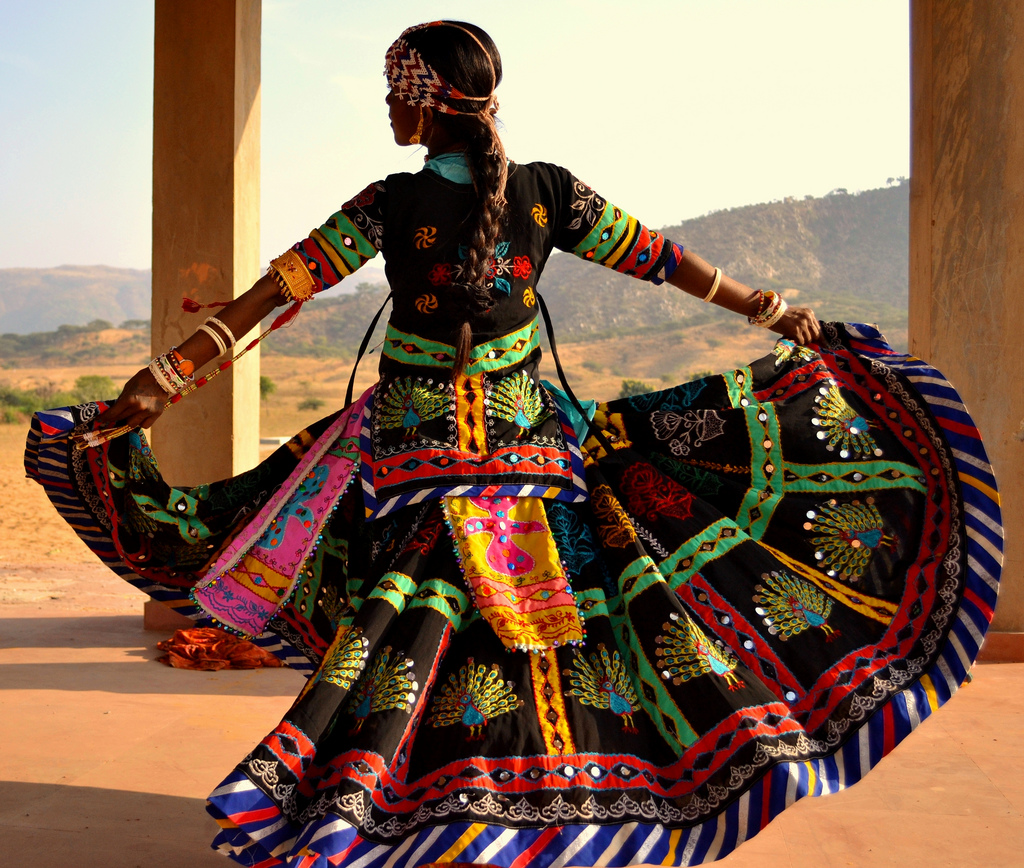Kalbelia
Gentle breeze, shaping the golden silky sand dunes all around you, rustic joyful music and dancers dressed in colorful clothes cheerfully filling the quiet surroundings. Wonder what would it be like to experience these mesmerizing moments and potentially dancing to the rhythmic enchanting music yourself , join the Kalbeliyas of Rajasthan, in the desert land in the Northwest part of India.
Kalbeliya dance is also called as Snake Charmers’ dance, as their communities’ livelihood revolves around Cobras. Males catch snakes and source venom for medicinal purposes. When it comes to the celebrations, females dance, males take care of music, singing, and instruments. They use the different instruments such as the pungi, a woodwind instrument traditionally played to capture snakes, the dufli, been, the khanjari - a percussion instrument, morchang, khuralio, and the dholak to create the rhythm on which the dancers perform.
The dancers’ steps and swirls are inspired by Cobras’ movements, clothes are black and tattooed in traditional designs, jewelry and garments are richly embroidered with small mirrors and silver thread. The upper body cloth is called "Angrakhi" and a piece of cloth worn on head is known as "Odhani". Similarly the lower body cloth is called "Lengha". All these clothes are nicely mixed in red and black hues and embroidered beautifully.
The Kalbeliyas have a reputation for composing lyrics spontaneously and improvising songs during performances. These songs and dances are part of an oral tradition that is handed down generations and for which there are neither texts nor training manuals. It is a matter of pride and joy for them doing a creative adaptation of changing socioeconomic conditions and their own role in rural Rajasthani society.
"Gulabo Sapera (aka Gulabo or Dhanvantri) is a very renowned named coming from this community. She was the seventh child of her parents. She spoke openly about the truth behind her birth and how her father tried burying her alive since he didn't have the money for her marriage and as there were already three other girls in addition to her in the family. The Government of India awarded her the civilian honor of the Padma Shri in 2016. Since 1992, Titi Robin regularly worked with Gulabi Sapera to whom he dedicated a book "Gulabi Sapera, danseuse Gitane du Rajasthan" (2000, Naive/Acte Sud). She tells her legendary life in Rajasthan, a nomad young lady who goes from the miserable life of snake charmers camps to national and then international recognition.
If you like this story, please consider supporting us

